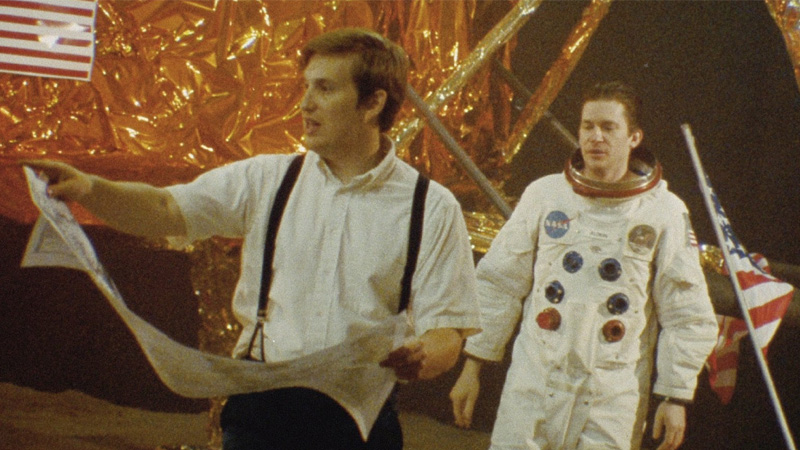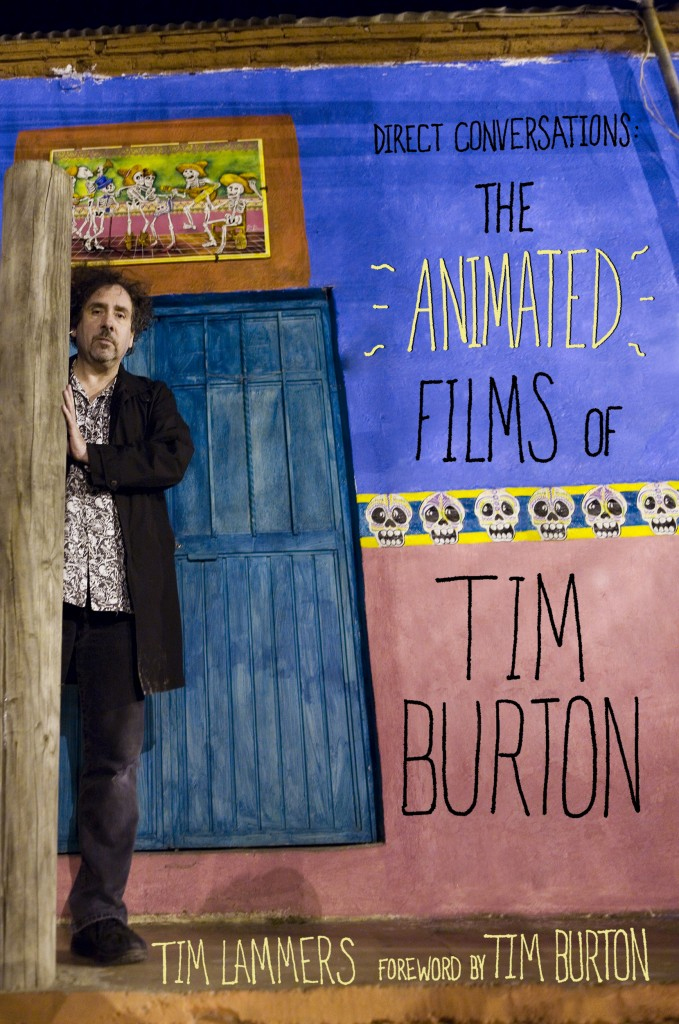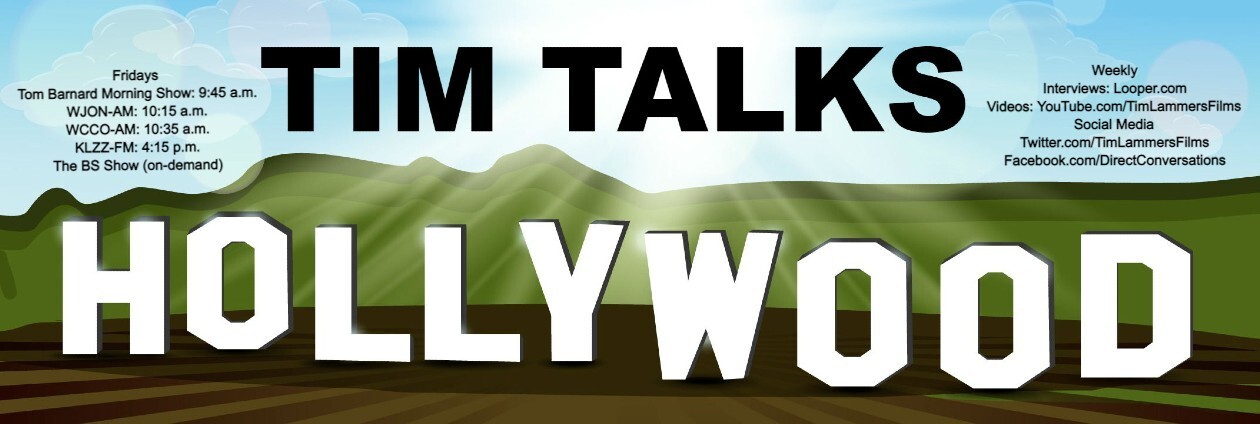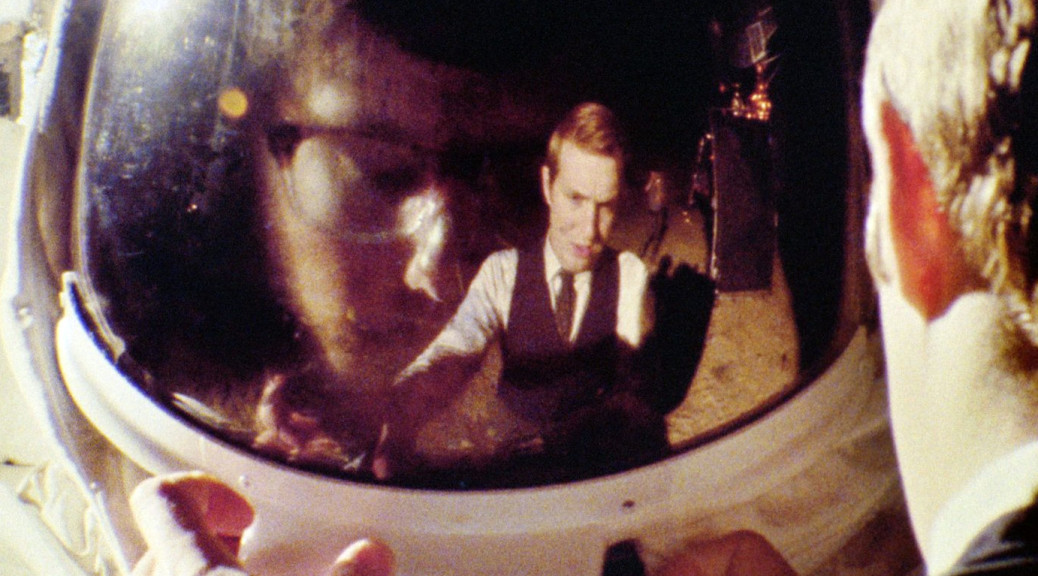 Ever since “The Blair Witch Project” kicked off the found footage genre in 1999, few filmmakers have conjured up any inspired ideas to further the genre beyond its horror film roots.
Ever since “The Blair Witch Project” kicked off the found footage genre in 1999, few filmmakers have conjured up any inspired ideas to further the genre beyond its horror film roots.
But as film fans are discovering this month, that’s all changing with writer-director Matt Johnson’s moonshot thriller “Operation Avalanche,” which utilizes the documentary style technique to explore an alternate take on the long-held conspiracy theory that the U.S. government faked Apollo 11’s landing on the moon in 1969.
The film, now playing in select theaters across the country and opening nationwide on Friday, tells the story of a fresh pair of CIA recruits from Harvard (Matt Johnson and Owen Williams) who inadvertently tap into information indicating that the Apollo mMission has enough thrust to get to the moon, but no ability to actually land on it. Proposing to their shady supervisor an idea to fake the moon landing in an effort to save face in the space race with the Soviets, Johnson and Williams (who go by their real names in the film) soon find themselves in the crosshairs of the government, which is determined to keep the cover-up a secret at any cost.
Follow Tim Lammers on Twitter and Facebook
“Operation Avalanche” is unique in that instead of going the obvious route and constructing a narrative about director Stanley Kubrick faking the moon landing — a claim that the late director’s daughter, Vivian, debunked, once and for all, in a tweet in July — it utilizes the legendary filmmaker in the story as an unknowing participant.
Since the film is an independent production, the lack of funds forced Johnson to be creative.
“The idea to do our story that way actually came out of necessity. There was no way we could afford that digital effect of bringing Stanley Kubrick back to life by inserting him in the film for more than a few frames,” Johnson said in a recent phone conversation.
“Of course, we couldn’t tell the story without him because he’s such a part of the legend. Everybody who talks about the moon landing being faked at some point mentions Stanley Kubrick,” Johnson added. “What was interesting to us was having a sequence in our movie that could almost stand as an ersatz version of the faked moon landing. His presence in the film allowed us to show people the power of the medium, and how you can do extremely fake things and make them look credible. It’s almost like a microcosm for the moon landing being faked itself.”
As “Operation Avalanche” pans out, it essentially leaves Kubrick off the hook for the rumor that’s been plaguing his legacy all these years. And while tight funds allowed only a bit of Kubrick to appear in the physical sense in “Operation Avalanche,” clearly the influence of the groundbreaking “2001: A Space Odyssey” filmmaker is all over the feature, which made its splashdown at Sundance in January.
“In many ways this movie is a love letter to Kubrick,” Johnson said. “We were trying to technically achieve the same types of dynamics and impossible feats that he tried to achieve in his early work.”

Naturally, one can’t go into movie like “Operation Avalanche” without doubts that the moon landing was faked. Still, Johnson’s theory on what really happened on July 20, 1969, may come as a surprise to most, if not all, conspiracy theorists.
“‘Operation Avalanche’ is coming from a guy who grew up hearing stories of the moon landing being faked and just thought it was a good story,” Johnson said. “I never believed in the conspiracy — not for a minute. I just thought the story of characters who could be able to do something like it was so compelling.”
After making the movie, Johnson added, it seemed even more obvious to him that the moon landing wasn’t faked.
“As suspicious of government as I am in many cases, in no way do I believe that NASA was involved in some sort of cover-up, mostly because it wouldn’t have served the public good,” Johnson said. “I don’t think there is a reason that they would have needed to fake it. Like we say in the film, if America had no chance at all of landing on the moon, the Russians wouldn’t have been doing much better. All that mattered to the Americans was that the Russians weren’t doing it first.”

